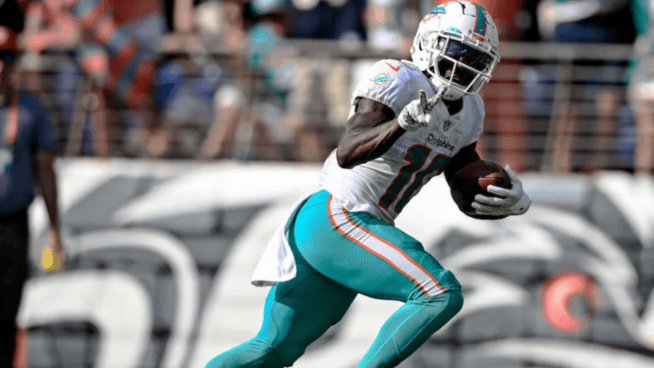Following Detroit Tigers strength coach Javair Gillett’s off-season strength and agility program is the first step to becoming a more powerful, better baseball player. The second is proper eating, because quality nutrition will complement those workouts, maximizing your training efforts. Start by focusing on these five baseball nutrition goals this summer.
Baseball Nutrition
1. Drink up!
No matter what week of the training schedule you’re on, practice proper hydration. Place heavier emphasis on downing drinks when you’re in warm, humid environments. Here’s a good rule of thumb: whatever half your body weight is, consume that many fluid ounces every day. Water is your best option, except during longer bouts of exercise, when a sports drink, like Gatorade, is perfect.
2. Eat consistently
You can’t afford to skip meals throughout the day. You need to maintain your energy levels for training and recovery. Develop a regular eating plan that has you fueling up five to six times throughout the day, including before and after workouts.
3. Eat a balanced and varied diet
Each food group provides specific nutrients needed to support your training. For example: breads, grains, cereals, pastas and starchy vegetables load you with carbohydrates, which fuel activity; meats, poultry, eggs and low fat dairy products have valuable, complete proteins, which prevent muscle breakdown and speed recovery. Fruits and vegetables contain beneficial phytonutrients and antioxidants, which fight the free radicals your body produces during heavy training. As the training program intensifies, increase your antioxidant intake to combat the added stress on your body.
4. Pre- and Re-Fuel
The most important eating periods are before and after exercise. Consuming carbs and a small amount of protein before helps you perform and reduces muscle damage that occurs as a result of training. No longer than 45 minutes after a workout, refuel with a minimum of 15 to 20 grams of protein and 45 to 60 grams of carbs to restore glycogen levels and facilitate recovery. You can slightly increase or decrease your carb intake based on the intensity and duration of a particular workout. A protein shake can be a convenient post-activity option, if taken in combination with carbohydrate-rich foods.
5. Eat enough quality calories
This tends to be the most neglected nutrition goal. The main objective of Javair’s training plan is to improve strength through a combination of explosive work and heavy weightlifting, which means you need more total calories than in-season. As calories increase, so will protein intake. You need to make sure that the protein comes from quality meals and snacks—rather than consuming straight protein.
Baseball Nutrition Plan
You can fulfill your caloric needs by spreading meals throughout the day with the following sample plan:
Breakfast [7:00 a.m.]: 8 oz. orange juice; 1C oatmeal, 2C skim milk; 20 oz. water
Post-Workout [9:30-10:30 a.m.]: Turkey sandwich; banana; Gatorade
Lunch [12:30-1:00 p.m.]: 1C cooked broccoli; 6 oz. grilled chicken breast; 2C pasta; 20 oz. water
Snack [4:00 p.m.]: Apple; peanut butter and jelly sandwich on whole-wheat bread; 2C skim milk; 20 oz. water
Dinner [6:30-7:00 p.m.]: 4-5 oz. grilled sirloin; 8 oz. baked potato; 1C grilled vegetables; 20 oz. water
RECOMMENDED FOR YOU
MOST POPULAR
Following Detroit Tigers strength coach Javair Gillett’s off-season strength and agility program is the first step to becoming a more powerful, better baseball player. The second is proper eating, because quality nutrition will complement those workouts, maximizing your training efforts. Start by focusing on these five baseball nutrition goals this summer.
Baseball Nutrition
1. Drink up!
No matter what week of the training schedule you’re on, practice proper hydration. Place heavier emphasis on downing drinks when you’re in warm, humid environments. Here’s a good rule of thumb: whatever half your body weight is, consume that many fluid ounces every day. Water is your best option, except during longer bouts of exercise, when a sports drink, like Gatorade, is perfect.
2. Eat consistently
You can’t afford to skip meals throughout the day. You need to maintain your energy levels for training and recovery. Develop a regular eating plan that has you fueling up five to six times throughout the day, including before and after workouts.
3. Eat a balanced and varied diet
Each food group provides specific nutrients needed to support your training. For example: breads, grains, cereals, pastas and starchy vegetables load you with carbohydrates, which fuel activity; meats, poultry, eggs and low fat dairy products have valuable, complete proteins, which prevent muscle breakdown and speed recovery. Fruits and vegetables contain beneficial phytonutrients and antioxidants, which fight the free radicals your body produces during heavy training. As the training program intensifies, increase your antioxidant intake to combat the added stress on your body.
4. Pre- and Re-Fuel
The most important eating periods are before and after exercise. Consuming carbs and a small amount of protein before helps you perform and reduces muscle damage that occurs as a result of training. No longer than 45 minutes after a workout, refuel with a minimum of 15 to 20 grams of protein and 45 to 60 grams of carbs to restore glycogen levels and facilitate recovery. You can slightly increase or decrease your carb intake based on the intensity and duration of a particular workout. A protein shake can be a convenient post-activity option, if taken in combination with carbohydrate-rich foods.
5. Eat enough quality calories
This tends to be the most neglected nutrition goal. The main objective of Javair’s training plan is to improve strength through a combination of explosive work and heavy weightlifting, which means you need more total calories than in-season. As calories increase, so will protein intake. You need to make sure that the protein comes from quality meals and snacks—rather than consuming straight protein.
Baseball Nutrition Plan
You can fulfill your caloric needs by spreading meals throughout the day with the following sample plan:
Breakfast [7:00 a.m.]: 8 oz. orange juice; 1C oatmeal, 2C skim milk; 20 oz. water
Post-Workout [9:30-10:30 a.m.]: Turkey sandwich; banana; Gatorade
Lunch [12:30-1:00 p.m.]: 1C cooked broccoli; 6 oz. grilled chicken breast; 2C pasta; 20 oz. water
Snack [4:00 p.m.]: Apple; peanut butter and jelly sandwich on whole-wheat bread; 2C skim milk; 20 oz. water
Dinner [6:30-7:00 p.m.]: 4-5 oz. grilled sirloin; 8 oz. baked potato; 1C grilled vegetables; 20 oz. water












